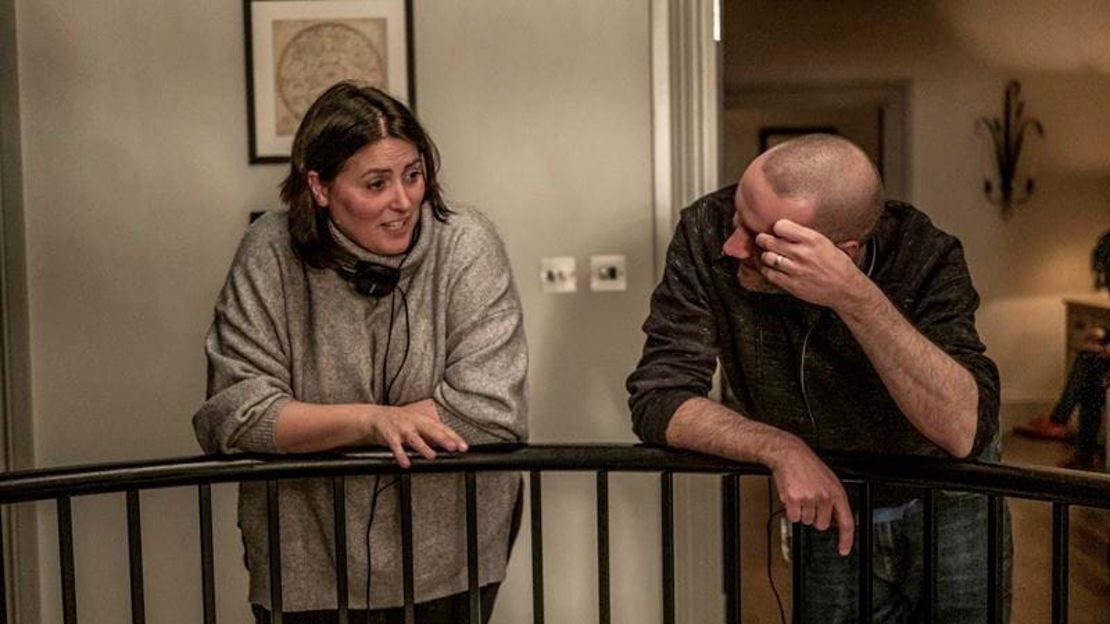Former factual producer Charlotte Surtees has been “singing ScreenSkills praises to everyone” since it helped her transfer into high-end television.
Having had a taste of scripted TV with biopics, she secured a place on the co-producer programme funded by the High-end TV Skills Fund which gave her the experience and contacts to make the move permanent.
The programme provided funding to support Charlotte as she produced six episodes of the Daniel Mays and Stephen Graham police comedy-drama Code 404. The experience proved so positive, she was then asked to produce Two Weeks to Live, a black comedy with Maisie Williams and Sian Clifford. Both were made by Kudos for Sky with Al Campbell as director.
Charlotte started her career at Darlow Smithson in factual and first turned her hand to scripted via the company’s critically-acclaimed biopics for the BBC about Dad’s Army and Dave Allen.
It gave her what she calls a “crash course in scripted”. But then she said: “I sort of hit the buffers a bit. My hurdle was I’d come from factual so I knew the principles, but to make that step over to scripted, to be taken seriously, is quite big. Because I’d come a different route and not done that traditional route script editing etc I just didn’t have the contacts.”
Charlotte found out about ScreenSkills from a director friend and then saw another make the move from factual to scripted with help from the High-end TV Skills Fund. That was “a kick up the bottom - I realised I had to stop waiting for someone to recognise I’m sitting here waiting for my chance and I have to get out there and ask people.”
She said: “For a long time I laboured under the belief that if you work really hard your chances will come. Then I realised the hard work is important, but you also have to be knocking on the doors at the same time.”
She rang ScreenSkills who talked her through how the co-producer programme worked with flexible funding designed to enable a production and individual to use the funds how they thought were most appropriate to support a step up into the role of HETV producer. For example, this could be through bespoke training, a contribution to salary to enable more time on the production or to focus more time in prep or post.
She was encouraged to contact her network to see if a forthcoming production might offer her an opportunity backed by the HETVSkills Fund programme. Charlotte had in her sights working with Kudos and luckily an opportunity arose to take the “big step” into HETV by producing episodes of its new comedy-drama Code 404.
Kudos were “brilliantly open-minded,” about her move, she said, and although lots of elements were new to her it was a “wonderful” experience.
“Although it took a leap of faith in me, the fact it came through ScreenSkills and they said they can support it financially [Kudos] thought it was worth the risk to open the door and they have a culture of stepping up.”
Utilising the funding provided by High-end TV Skills Fund Kudos put in place a supportive network of executives to help her and once they had helped fill in any gaps in her knowledge of working in scripted, Charlotte said: “I was given a huge amount of ability to make creative decisions.”
Straight after the success of Code 404 – which was subsequently recommissioned by Sky - Kudos asked Charlotte to produce Two Weeks to Live. Through another ScreenSkills programme, from the HETV Producers Working Group , Charlotte was able to build on what she had learned by being matched with her choice of mentor in Adam Tandy, producer of Inside No.9 and Detectorists.
“During Two Weeks to Live, Adam was my mentor so if there was something I was struggling with, I could just pick up the phone or drop him an email. To have that brilliant mind to tap into was great, it was invaluable. It’s brilliant that ScreenSkills do that…having someone you trust who won’t judge you.”
With fight sequences and car stunts, Two Weeks to Live was another learning curve for Charlotte but it was “incredible fun”.
She has been so impressed by ScreenSkills that she has introduced others to its work: “The more people who are aware that there’s this support and training and door opening the better. What they can do for you, if you’re determined, is so helpful.”
The co-producer programme is not currently open for applications. However, anyone looking to access support to progress as a producer in high-end television should go to Make a Move for details of funding available for stepping up and productions interesting in learning more about the programme for an up-and-coming production should contact the High-end TV Skills Fund team at ScreenSkills.
